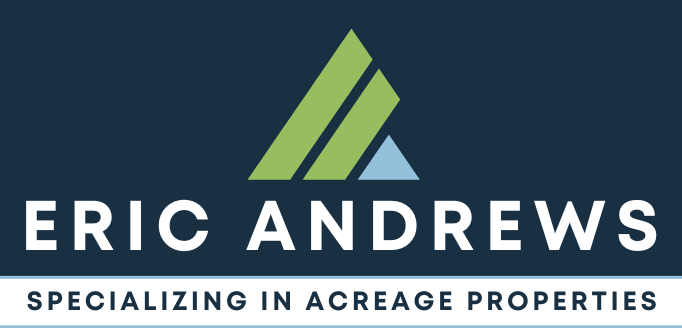Due Diligence money is a check written to the seller. The money is compensation to the seller for removing a property from the market. If a sale is completed, Due Diligence money is applied to the sale of the property. Long ago, when North Carolina introduced Due Diligence money, payments of $0 – $100 were normal. As of 2022, $2,000 – $5,000 is common, however, Eric has seen Due Diligence payments as high as $175,000. Buyers are sometimes surprised to find out that sellers generally do not need to refund this money, but NC is a buyer beware state.
Speaker 1: Can you explain due diligence?
Speaker 2: Due diligence is so much different in North Carolina, and it really… First of all, it was just a few years ago that we didn’t even have due diligence money. And a lot of other states don’t have this concept. Most people are used to the traditional earnest money. “I’m going to buy your property. Here’s a couple grand, we’re going to put it into a trust account. And that is held in between while we investigate the property. If I decide not to buy the property, I get the earnest money back.” And so North Carolina went into a different direction.
We still have earnest money, but now we have due diligence money. And the best way for me to explain due diligence money is due diligence money is a check that is written to the seller and it is compensation to the seller for removing the property off the market. Well, when we first did this 8, 10, 11 years ago, it was very common to have zero due diligence money, or we do $100, “I’ll give you $100 but that’s it.” Now, due diligence money, we’re talking staggering amounts.
The norm for me right now is probably $3,000, $4,000 or $5,000, but we’ve done them at $10,000, $15,000 and $25,000. We did one several months ago, $175,000. Those people are not walking away from the deal if they put down $175,000. So this is a check at the time of contract that is given to the sellers. And like I said, it is compensation for removing the property off the market. Now, here’s the thing. During your investigation, you have your home inspector come out and he says, “Oh, my gosh, this is the worst house ever.
The foundation is shot, your HVAC is done. It’s going to cost you $50,000 to fix all this stuff.” And the buyer gets really upset and he says, or they say, “I need you to fix these things.” And the seller’s like, “I’ve got your $25,000. I don’t care if you buy it or not.” And they’re like, “You should have known about these things, and now we want our $25,000 back.” You’re probably not going to get your… First of all, it was written to the sellers. It was for you to investigate the property.
You’ve discovered something that makes you not want to buy the property. That seller still gets to keep the $25,000. We can get real, real technical and say, if the seller knew about those defects and didn’t disclose them, then you could argue that they were in breach and you could sue for the money back. But I mean, North Carolina’s caveat emptor or buyer beware, you need to know that when you write that check, that money is gone. So that’s the biggest thing that people don’t understand is first of all, that money should be ready and available at the time that you make the offer.
That’s something that agents don’t always do. I think it should be submitted with the offer. There are people that will only give it to you once the offers has been signed. That’s a little bit of a gray area, but the most important thing that people need to understand is this money is gone. Now, it is applied to purchase price, but there’s no way of getting that money back, and I wish buyers and agents would take that more seriously. Now, you’re buying time. And so maybe you want two weeks due diligence.
Well, that’s not going to be as much money. Maybe you need 10 weeks due diligence. Well, that’s going to take more time and you’re going to want more money, especially in the residential area. But I think one of the things that the carry agent does… I don’t know why we always make fun of carry agents, but we do. The carry agents-
Speaker 1: Do you make fun of the carry agents?
Speaker 2: I make fun of the carry agents, because I deal with a lot of carry agents. But there’s this expectation that due diligence isn’t a big deal. And maybe you know a seller that one time they got to a point where the six weeks are up and they’re like, “You know what, Eric? We need another week.” Well, we’re not going to give you another week. It is a time is of the essence provision. That puppy expires Thursday 5:00 PM, and it means something. So you either tell us that you’re going to buy it or not at that point.
If you don’t tell us anything, now your earnest money’s in peril. So you have a second set of money that’s in peril. But if you want an extension and the seller doesn’t feel as though there’s a legitimate reason for that extension, or if the seller has heard of a backup offer or something, they might ask for a considerable… They’re well within their rights to ask for more due diligence, right?
So you can have somebody that gave $25,000 and they’ll say, “Oh, Eric, my appraisal didn’t come in. We need two more weeks.” My sellers within their rights to ask for another $25,000. So people just need to know that when you’re asking for that time and due diligence, you better be asking for enough time to get everything done. So that’s the most important thing that people that are coming from out of state, California people don’t have due diligence, New York people don’t have due diligence. In North Carolina, you are paying to take that property off…





